Western Sahara welcomes Morocco's African Union membership
- Published
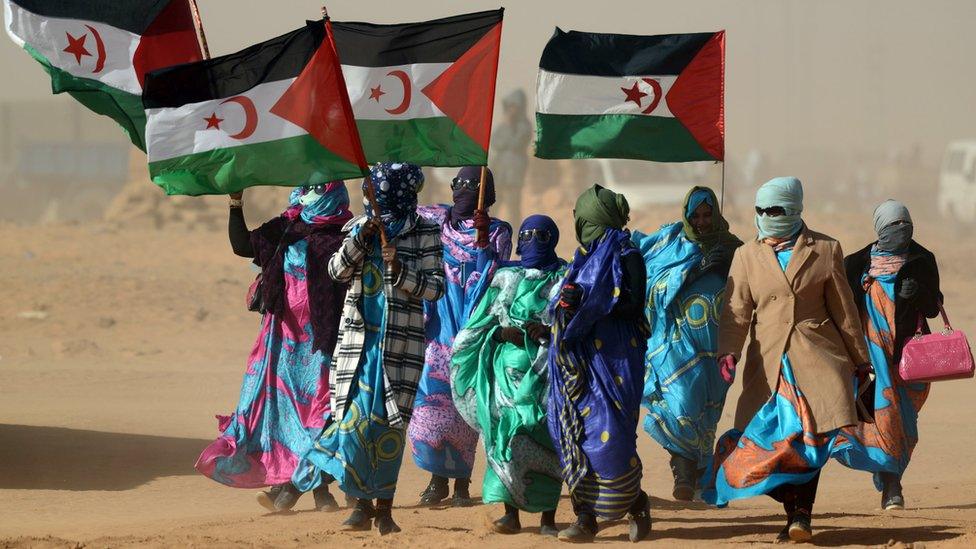
Western Sahara has welcomed Morocco's readmission to the African Union, 32 years after members refused to withdraw support for the territory's independence.
It was a "good opportunity" and "a chance to work together," a top Western Sahara official told the BBC.
Morocco controls two-thirds of Western Sahara and sees it as part of its historic territory.
However some, including the UN, see Western Sahara as Africa's last colony.
Africa Live: More on this and other stories
Find out more about Western Sahara
A referendum was promised in 1991 but never carried out due to wrangling over who was eligible to vote.
Thousands of Sahrawi refugees still live in refugee camps in Algeria - some have been there for 40 years.
Forty years in a refugee camp
What difference will this make to Western Sahara?
It is not clear what happens next but Western Sahara is hopeful that a committee set up by the AU will address the issues that both sides have raised.
Some AU delegates said that it would be easier to resolve the issue with Morocco inside the AU.
Sidi Mohammed, a Western Sahara official, told the BBC that Morocco's return to the AU means that it would now be expected to put "in practice decisions taken by the AU with regard to a referendum in Western Sahara".
Mr Mohammed dismissed the suggestion that Morocco would now seek to get the AU to change its position, saying that the no country could unilaterally change the AU fundamental agreement, saying it opposed colonisation.
In his speech at the AU summit, King Mohammed VI of Morocco said the readmission was not meant to divide the continental body.
Algeria fell out with Morocco over Western Sahara - has that changed?
No. Algeria has always been a big supporter of Western Sahara's Polisario Front and it had wanted Morocco to accept independence of the territory as a condition for readmission.
Zimbabwe and South Africa were also supportive of this stance but they were outnumbered by those who wanted Morocco back in the fold.
Why did the AU not insist on Morocco recognising Western Sahara?
There is no specific provision in the AU charter that bars any country from joining it.
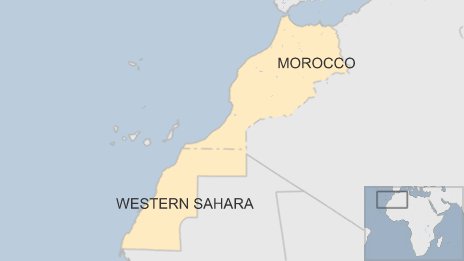
Morocco simply applied and the request was accepted by more than two-thirds of the 53 members.
Morocco has been involved in intense lobbying and applied in July last year to rejoin the continental body.
King Mohammed toured various African countries seeking support for the bid.
Why did Morocco want to rejoin - is it a shift from being Arab-focused to looking towards Africa?
No. While culturally the country's identity aligns with Arab states, its economic interests increasingly lie in Africa.
This is a strategic move to continue exploring its interests in mining, construction, medical, insurance and banking sectors on the continent.
Moroccan troops went into Western Sahara after Spain withdrew in 1975.
How did we get here?
1975-76: Morocco seizes two-thirds of Western Sahara after colonial power Spain withdraws.
1975-76: Polisario Front declares the Saharan Arab Democratic Republic (SADR), with a government-in-exile in Algeria. Thousands of Sahrawi refugees flee to western Algeria to set up camps.
1984: Morocco leaves the Organisation of African Unity (which later became the African Union) in protest at the SADR's admission to the body.
1991: UN-monitored ceasefire begins in Western Sahara, but the territory's status remains undecided and ceasefire violations are reported. The following decade sees much wrangling over a proposed referendum on the future of the territory but the deadlock is not broken.
March 2016: Morocco threatens to pull its soldiers out of UN global peacekeeping missions in Western Sahara, after UN Secretary-General Ban Ki-moon uses the term "occupation" when referring to the territory.
May 2016: Long-time Polisario Front leader Mohamed Abdelaziz dies aged 68
- Published25 December 2016
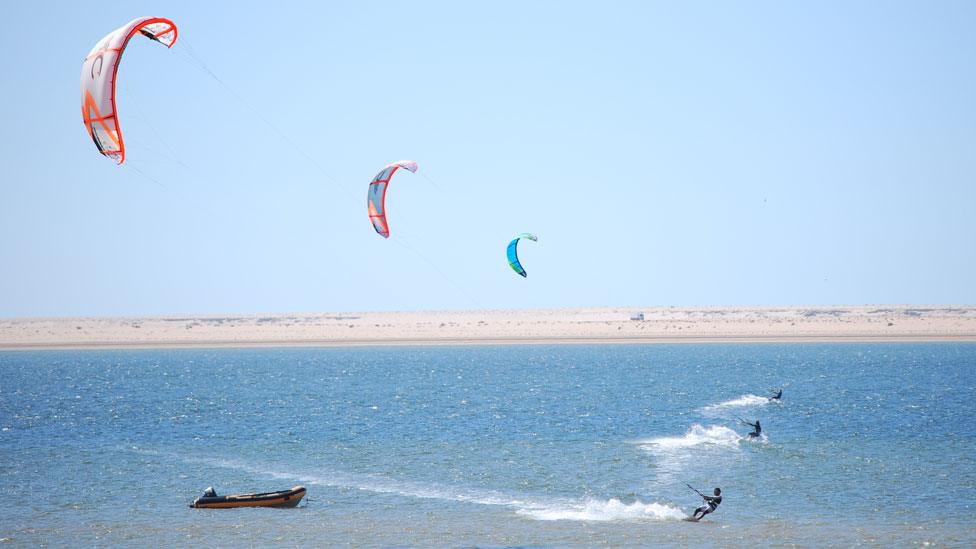
- Published24 August 2017
- Published24 January 2017
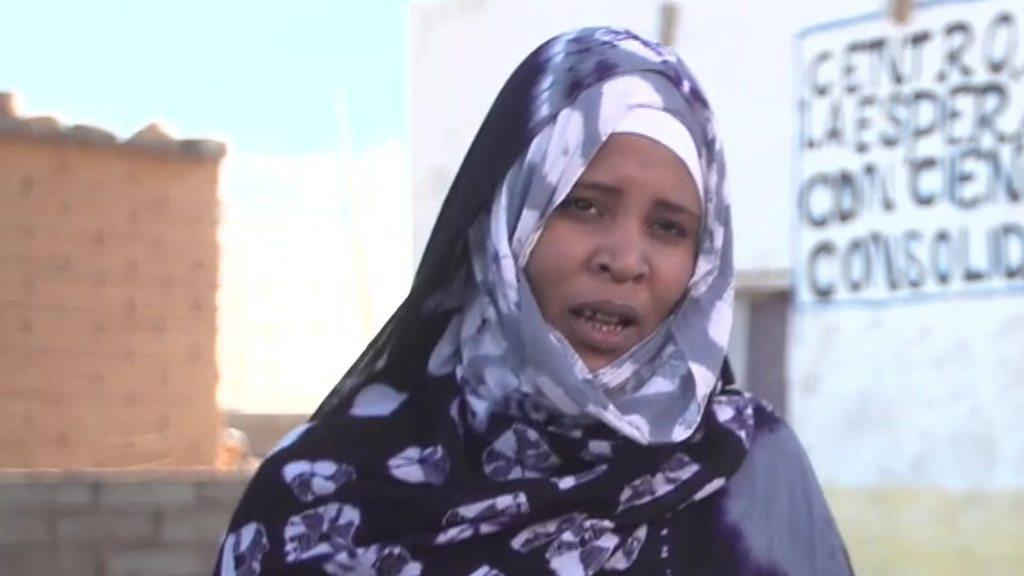
- Published16 May 2015
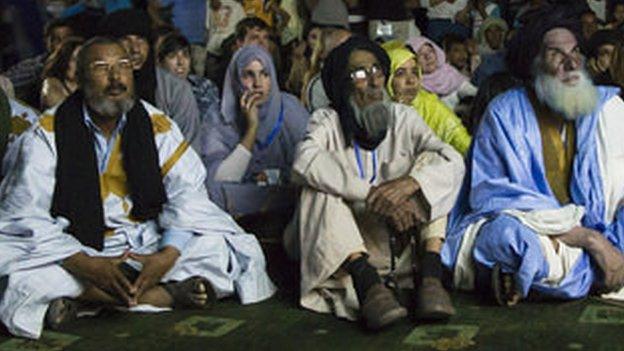
- Published20 May 2015

- Published28 October 2024
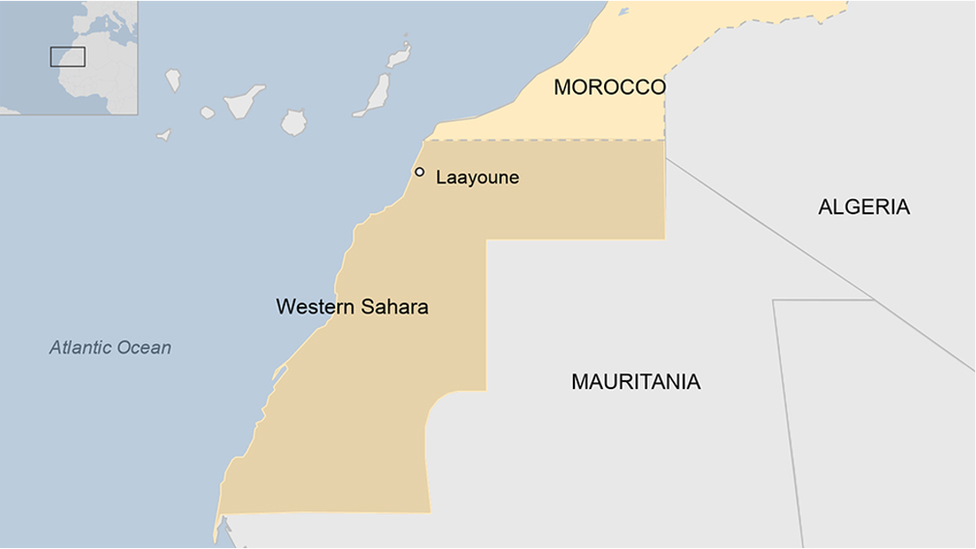
- Published11 November 2015